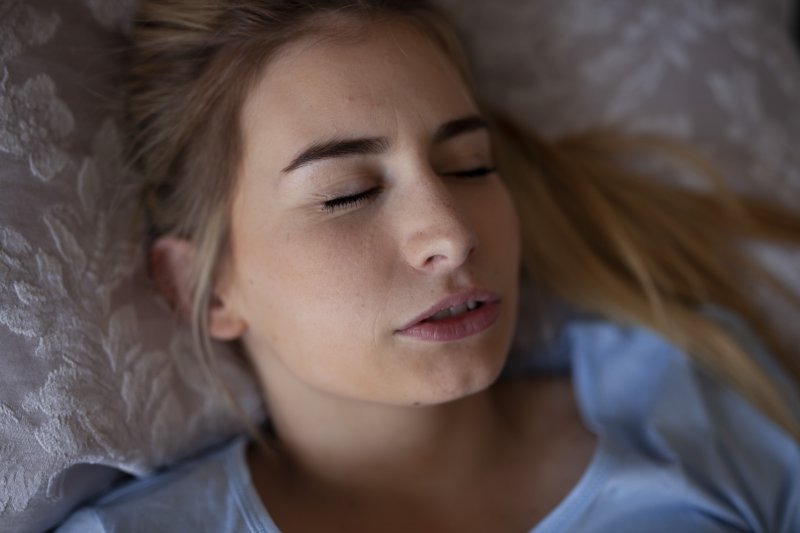
It is not uncommon for both children and adults to grind their teeth. While there are many reasons this condition known as bruxism can develop, stress and poor bite alignment are often the most popular. Unfortunately, when left untreated, grinding can lead to many oral and overall health problems. Here are 5 potential dangers that can arise if your bruxism continues and what you can do to stop it once and for all.
What Can Happen if Teeth Grinding is Left Untreated?
Unless you have someone who can tell you if you are grinding your teeth at night, you may not even realize you’re doing it, especially if you don’t know the other signs commonly associated with the condition (i.e., pain throughout the jaw or ear, tight jaw muscles, worn tooth enamel, dull headaches, etc.). Allowing bruxism to continue without treatment will only lead to worsening symptoms and eventually, timely and costly treatment to fix your teeth and facial structure. Some of the most common problems that can occur as a result of teeth grinding include:
- Temporomandibular Joint Disorder (TMD) – You may find it difficult to open and close your mouth and develop intense headaches or migraines because of the added pressure placed on your teeth and jaw when grinding at night.
- Cracked/Broken Teeth – The more you clench and grind your teeth, the greater your chances of breaking or cracking one or more of your teeth, resulting in the need to see an emergency dentist. This can also be true for fillings or restorations (i.e., dental crowns, bridges).
- Worn Tooth Enamel – Over time, this habitual practice will wear down tooth enamel, causing them to become more vulnerable to breakage, decay, stains, and other potential oral health issues.
- Toothaches – Tooth pain is a real possibility when grinding your teeth. The increased pressure can lead to severe toothaches requiring everything from over-the-counter pain reliever or even treatment by an emergency dentist.
- Sleep Apnea – Believe it or not, grinding your teeth might result in developing sleep apnea. Although much research still needs to be done, it is believed a person’s blocked airway and their body’s response when attempting to breathe causes rapid heart rate and stress hormones to increase. As a result, this can lead to grinding and clenching.
How to Stop Grinding Your Teeth
To avoid the above-mentioned dangers caused by teeth grinding and clenching, your dentist can recommend a customized oral appliance. Designed specifically for your mouth, impressions are taken and used to create a device that you wear in your mouth while asleep. When worn correctly, it can keep teeth from touching each other as well as relax your jaw and facial muscles to prevent additional pressure that can occur due to clenching and grinding.
Teeth grinding no longer has to be a condition you live with the rest of your life. With the help of your trusted dentist and custom-made oral appliance, you can achieve relief from the pain and avoid more serious problems in the future.
About the Author
Dr. George Hoop is a dentist in Fort Myers and Naples who graduated second in his class from the Emory University School of Dentistry with his Doctor of Dental Surgery degree. After completing a periodontal specialty residency at Emory University, he continued to pursue continuing education opportunities, honing his skills in dental implant training. As the dentist at Total Dental Solutions, he is pleased to provide an array of comprehensive services to patients needing help to restore, rebuild, and enhance their smiles. He also provides customized oral devices designed to treat TMJ and bruxism. If you are prone to grinding or clenching your teeth at night, contact us at (239) 594-8817.

